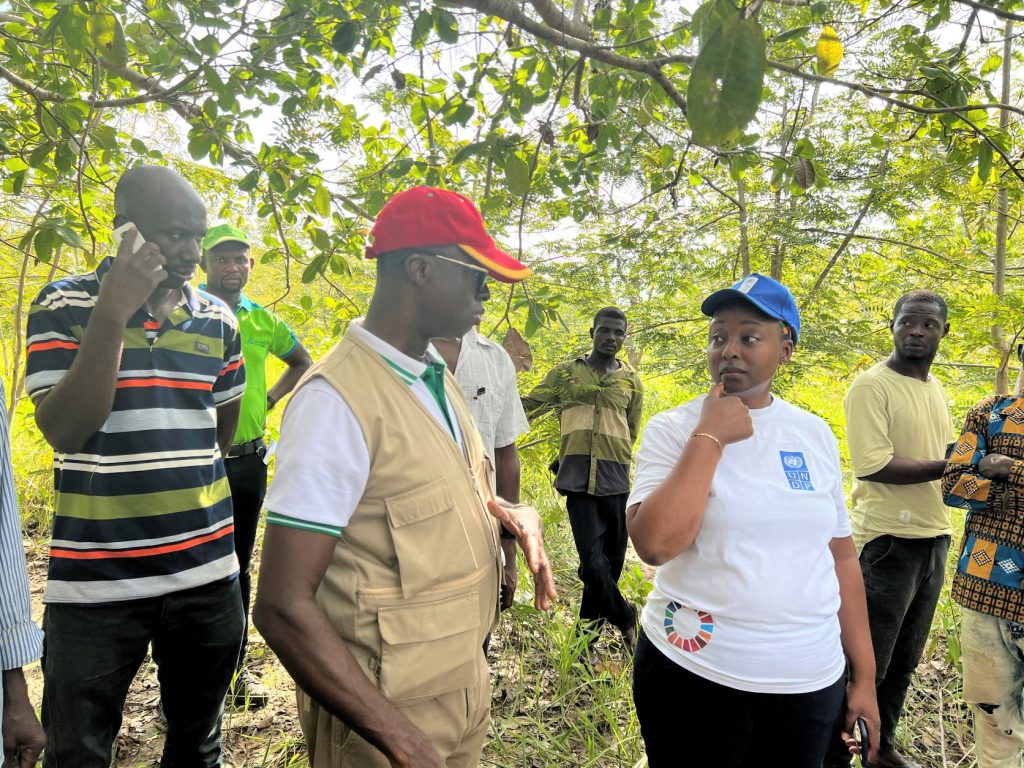By Florence Afriyie Mensah
Kumasi, Sept.22, GNA – The United Nations Development Programme (UNDP) has implemented a one-million-dollar project to plant five million trees to restore degraded areas in the Black Volta landscape.
The programme dubbed ‘OneTreePlanted’ which is a two-year plan (2022-2024) is being implemented under the UNDP Global Environment Facility Small Grant Programme (GEF/SGP) at Maluwe in the Bole Bamboi District of the Savannah Region of Ghana to restore 170 hectares of degraded areas.
Among other things, the project will enhance capacity and supply various seedlings including Cassia, Mahogany, Cashew, and Mango to selected communities in the Black Volta landscape for planting and fight environmental degradation and promote sustainable livelihood enterprises in the landscape.
“This programme is about not leaving anyone behind. We are all expected to be involved in tree planting on farms, in open spaces, around towns, school compounds and in forest areas. Plant at least one tree and maintain it for people and for the planet,” Dr. Angela Lusigi, the UNDP Resident Representative in Ghana, told the Ghana News Agency (GNA) on the sidelines of the launch.
She assured that the programme would contribute to the Ghana government’s Green Ghana agenda by supporting the communities to invest in sustainable land management and the conservation of the Black Volta Basin ecosystem.
It will also focus on providing alternative livelihood support systems to enhance the wellbeing of the people, whiles sustaining the environment.
Dr George Ortsin, the National Coordinator of the UNDP GEF Small Grant Programme in Ghana, said the Grant was already supporting five communities in the Bole Bamboi District with agroforestry and the OneTreePlanted Programme would complement the existing agroforestry initiative.
He indicated that the Programme would mobilize additional support from other development partners adding that, the TerraFund for financing Africa’s Top 100 Tree Restoration Projects and Enterprises has committed US$150,000 over the next three-years to support the programme.
The Black Volta landscape is an international water ecosystem that generates clean energy from the Bui hydropower for national development.
The landscape also provides a haven to globally threatened species including hippopotamus, elephants, and Buffalos.
It is also known that crop production from this landscape contributes 37.5% of yam, 11.3% of cassava, 17.2% of maize and 28.7% of local rice to the national totals.
The prosperity and sustainable management of the Black Volta landscape is therefore a great priority for national development, but the landscape has been subjected to environmental abuse over the years.
The area experiences uncontrolled wildfire, illegal mining, uncontrolled harvesting of wood for timber and charcoal, and unsustainable farming practices.
A trend analysis shows that if nothing is done, Ghana is likely to lose the potential of the Black Volta landscape as a natural resource for national development.
Currently, almost 2000 farmers in five communities in the landscape are restoring the degraded landscape under the UNDP GEF Small Grant Programme.
The farmers have integrated food crops into their woodblocks with the aim of mitigating and adapting climate change mitigation, while reducing poverty and protecting the environment.
The Chief of Maluwe, Maluwewura Sulemana Bramani, expressed appreciation to UNDP and pledged the commitment of the communities in the area to the success of the programme.
“We are very happy that UNDP has selected our area for this laudable agenda,” he observed.
GNA
